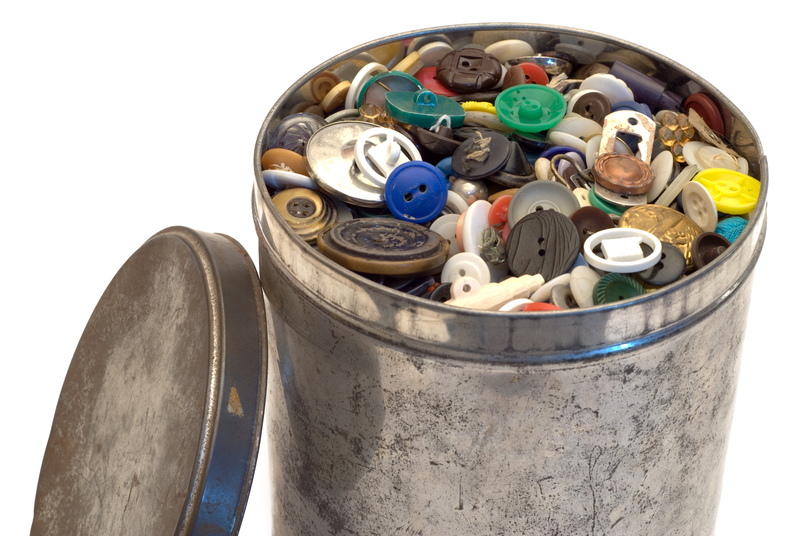Money-Saving Tips for Disposing of Large Household Waste
Disposing of large household items often presents a unique challenge. Old furniture, broken appliances, mattresses, and other bulky waste can add clutter to your home and often come with costly removal fees. Fortunately, there are several money-saving tips for disposing of large household waste that are effective, environmentally friendly, and wallet-friendly. Explore this comprehensive guide to learn how you can efficiently and economically get rid of large items while staying compliant with local regulations and reducing environmental impact.

Understanding Large Household Waste Disposal
Large household waste, also known as bulky waste, refers to items too big or heavy to be disposed of in regular curbside bins. Examples include:
- Sofas and couches
- Refrigerators and washing machines
- Mattresses and bed frames
- Old carpets and rugs
- Broken cabinets and tables
Improper disposal not only causes environmental issues but can also result in hefty fines. Fortunately, you can save money and the environment with the following strategies.
1. Plan and Sort Before Disposal
Planning is essential for reducing costs when dealing with large household waste disposal. Take these steps:
- Make a List: Document everything you need to remove.
- Separate by Material: Sort wood, metal, electronics, and textiles. This helps in determining recycling or donation options.
- Assess Condition: Items in good condition may be resold or donated, potentially offsetting any disposal costs.
Sorting your waste not only streamlines the disposal process but also opens up more cost-effective options by differentiating recyclable, reusable, and junk items.
2. Leverage Free Collection Days
Many municipalities offer free bulky waste collection days, typically on a scheduled basis. These community services allow residents to dispose of furniture, appliances, and other large items at no cost.
- Check your city or county website for collection schedules and rules.
- Arrange your waste for the designated pick-up dates, following any specific preparation instructions (e.g., removing refrigerator doors).
Tip: If you're not eligible for free pick-ups, ask neighbors to combine loads and share any flat-rate costs for private collection--a simple way to split fees and save money.
3. Recycle When Possible
Recycling isn't just environmentally friendly--it often costs less. Many areas have specialized recycling centers that accept:
- Metal bed frames, appliances, and electronics
- Mattresses (some states require recycling by law)
- Wooden furniture free of upholstery
Check for local recycling programs or drop-off days. Some offer discounts or even reimbursements for certain materials, such as metals and electronics. This is a powerful way to offset or even profit from bulky household waste disposal.
4. Donate or Give Away Usable Items
Items in usable condition can be given new life through donation or giving away. Not only does this route save you money--it can potentially provide tax deductions!
- Contact Local Charities: Groups like Goodwill, Salvation Army, and Habitat for Humanity often accept large household items, sometimes even offering free pick-up.
- Use Online Platforms: Websites such as Craigslist, Facebook Marketplace, Freecycle, and OfferUp are perfect for listing items for free or for sale.
- Organize a Curb Alert: Placing items at your curb with a "Free" sign can clear out bulky items quickly in many neighborhoods.
Donating is a fantastic way to save money on disposal costs and help others in your community.
5. Upcycle or Repurpose
Before paying to dispose of anything, consider whether it can be upcycled or repurposed. Many old household items can be transformed for new uses:
- Convert an old dresser into a TV stand or garden storage bench.
- Use wooden bed slats for DIY shelving.
- Turn old windows and doors into wall art or picture frames.
Upcycling reduces waste and can save you on the cost of new furniture or decor.
6. Do-It-Yourself Disposal (DIY)
If your local waste facility accepts residents' direct drop-offs, consider self-hauling your large household waste. This option often comes with minimal fees--sometimes billing by weight or item.
- Borrow or rent a truck or trailer if needed. Check if local home improvement stores offer rental discounts.
- Recruit friends or family to help--making the job faster and more fun.
- Be sure to check permitted items, fees, and hours of operation before heading out.
DIY disposal can save substantial amounts compared to hiring removal services, especially when handling multiple items at once.
7. Rent a Dumpster for Group Disposal
When you have a large volume of waste--such as during home renovations or estate cleanouts--renting a dumpster can be highly cost-effective when coordinated with family, neighbors, or friends.
- Dumpster rental companies provide varying bin sizes and flexible timings.
- Pooling resources with several households can significantly lower per-person costs.
- Be clear about what's permissible (hazardous materials are typically restricted).
This option is especially useful during community clean-up events or when moving out of apartments with shared disposal needs.
8. Explore Local Bulk Waste Vouchers
Check whether your local council or waste management agency offers bulky waste vouchers or rebate programs. These incentives cover all or part of the disposal cost for certain items.
- Apply for vouchers online or in person as soon as they're available--these programs are sometimes limited and awarded on a first-come, first-served basis.
- Review eligibility: Some programs cover e-waste, mattresses, or appliances, while others look for proof of home renovations or upgrades.
Bulky waste vouchers are a hidden gem for cost-conscious households.
9. Avoid Hazardous Waste Fees
Improper disposal of hazardous large household waste--such as refrigerators (which may contain Freon), electronics, or treated woods--can result in extra charges or legal penalties. Save money by:
- Researching proper preparation steps, such as removing refrigerants or batteries as required.
- Utilizing free hazardous waste pick-up days, often scheduled by local authorities.
- Calling your waste service provider for guidance before attempting DIY drop-off.
Avoid unnecessary expenses by staying informed about hazardous item handling.
10. Hire a Responsible and Competitively-Priced Junk Removal Service
If you must use a professional junk removal company, compare quotes from several providers and look for those offering discounts, package deals, or price-matching guarantees. Save money by:
- Requesting a free estimate: Many companies now offer quotes online or by phone.
- Choosing off-peak days or times: Some providers lower rates for midweek pickups.
- Bundling services: Combine multiple items or neighbors' loads to negotiate a better price.
- Checking their disposal methods: Prefer companies that recycle or donate, reducing landfill fees.
A little price comparison and negotiation can go a long way toward keeping costs low.
Extra Tips for Economical Bulk Waste Disposal
- Break Down Items: Dismantle furniture to fit more in each load or bin, reducing volume-based charges.
- Store When Possible: Wait to accumulate several bulky items before arranging disposal to maximize value if minimum charges apply.
- Clean Items: Some centers charge extra cleaning fees for dirty or contaminated pieces.
- Read Your Lease Agreement: Renters may have access to community bulk waste facilities as part of their rental agreement--don't pay extra if you don't have to!
- Partner With Neighbors: Organize a bulk-waste day for your neighborhood to share in collection or hauling fees.
What Not to Do: Common Money-Wasting Mistakes
Avoid these frequent pitfalls when disposing of large household furniture and appliances:
- Ignoring Local Rules: Illegal dumping is costly and damaging to the environment. It can lead to steep fines.
- Paying for Collection Unnecessarily: Always check for free or subsidized services before opening your wallet.
- Throwing Away Donatable Items: Many items destined for the dump can benefit others and cost nothing to hand off.
- Leaving Waste Unprepared: Failure to remove doors, disconnect appliances, or properly bundle items can lead to extra charges.

The Environmental Impact: Why Proper Disposal Matters
The way you dispose of large household waste impacts more than your bank account. Landfill space is at a premium, and many bulky items contain materials that can be hazardous or take decades--even centuries--to break down.
- Recycling: Reduces raw material use and landfill strain.
- Donation: Extends the usable life of an item and supports the community.
- Professional Disposal: Ensures hazardous materials are handled safely.
By implementing money-saving strategies for large household waste disposal, you not only save on costs but also contribute to a cleaner, greener planet.
Conclusion: Smart Choices for Affordable Large Household Waste Removal
Successfully and economically disposing of bulky waste does not have to be a costly headache. By taking advantage of local resources, free pick-up days, recycling and donation options, and group efforts, homeowners and renters alike can significantly minimize or even eliminate large household waste disposal expenses.
Remember: Planning ahead, staying informed, and seeking out community resources are your best strategies for cutting costs. Consider giving your unwanted items new life through donation or upcycling before seeing them as waste. And always take a moment to research the rules in your area to avoid fines and extra charges.
With these money-saving tips for disposing of large household waste, your next decluttering project can be efficient, affordable, and environmentally responsible!
FAQ: Money-Saving Tips for Disposing of Large Household Waste
- Can I leave bulky furniture at the curb for free pickup?
In many areas, certain days are designated for free or low-cost curbside collection. Check local regulations before leaving items outside. - Are there fees for disposing of appliances or mattresses?
Some cities charge for large appliance removal due to special handling needs, but many also provide vouchers or free recycling events throughout the year. - What's the cheapest way to get rid of large junk?
Donating or giving away usable items, self-hauling to recycling centers, or leveraging free community pick-up days are usually the least expensive options. - Can I recycle my old household electronics?
Absolutely! Most electronics recycling centers accept TVs, computers, and other gadgets, sometimes at no cost.
For more cost-effective large household waste disposal tips, stay proactive, utilize community programs, and always look for ways to recycle, repurpose, or donate. Your wallet--and the planet--will thank you!